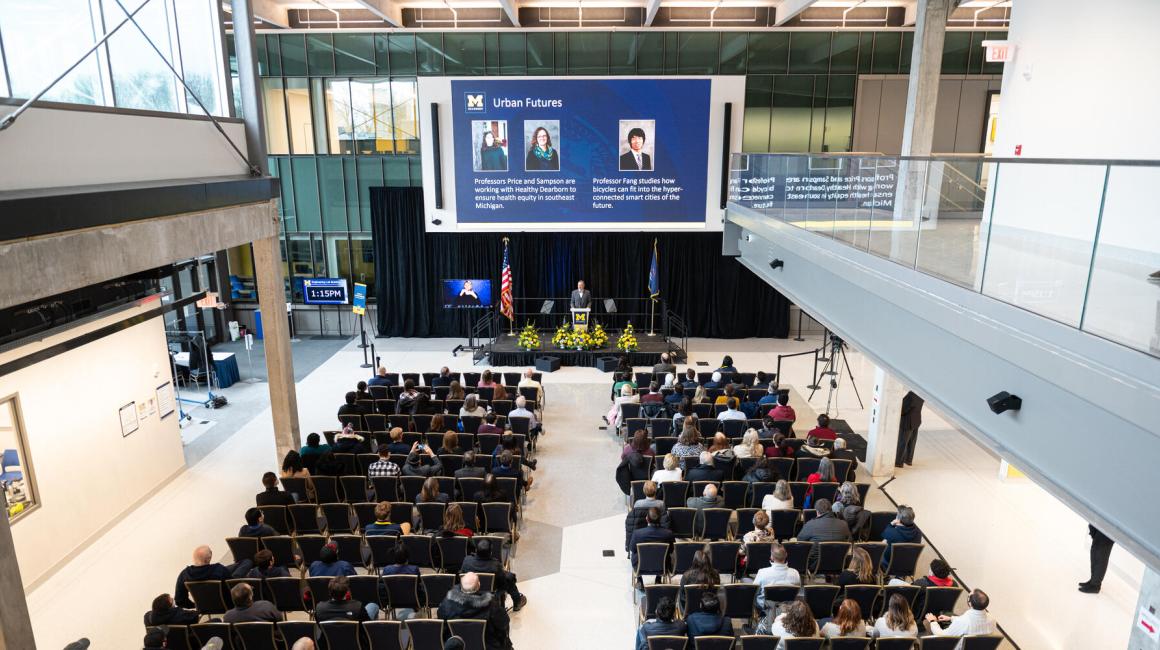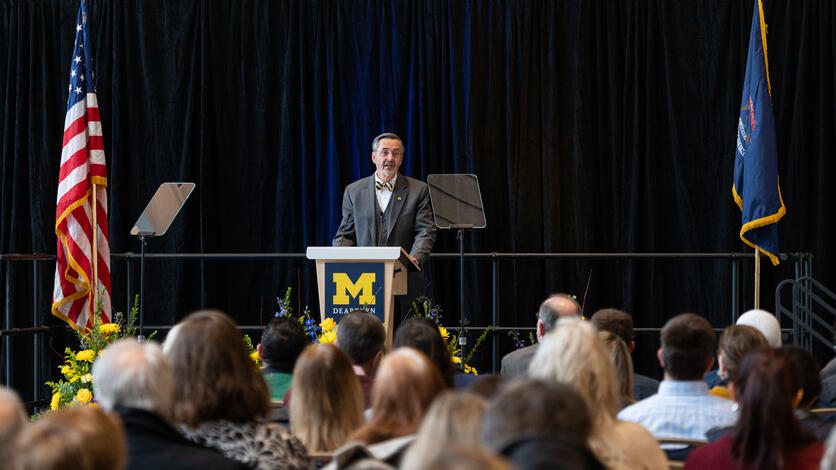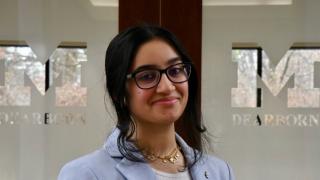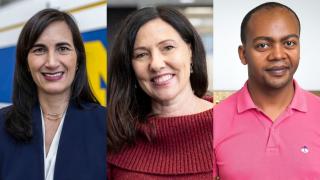
To make the most of an understatement, it’s been a challenging couple of years. But Chancellor Domenico Grasso began Thursday’s state of the university address by reminding us that the University of Michigan, in its 200-plus year history, has endured tough times before — including past pandemics and political divisions not dissimilar from today’s. Indeed, such moments often inspire us to deliver on our mission in new and interesting ways. “Our plans and our futures will adapt and evolve, but we look toward tomorrow with a sense of optimism and pride, knowing that one thing remains the same: the Dearborn branch of the Michigan family tree is as strong as it has ever been,” Grasso said during the opening of his speech. “We will always offer students an outstanding education that leads to personal transformations and growth and empowers them to be a force for good in the world.”
Grasso outlined a number of reasons for such optimism. As he often does, he praised the university’s COVID response as unrivaled, noting that we not only pivoted to remote and in-person classes at the right times, but skillfully and compassionionately addressed equity, access, technology and mental health challenges posed by the pandemic. And as we look ahead, he identified five key areas where the university is innovating in meaningful ways. First, he noted that the university is writing a dynamic new chapter in its history as an institution known for practice-based learning. For example, we’re continuing to expand our options for professionally oriented graduate programs, including a new degree type for UM-Dearborn called the Doctor of Engineering. In the fall, we’re also launching five new “scholar communities” that help students tightly integrate their practice-based studies with opportunities outside their classes. And across all four colleges, the university is leveraging its metropolitan location for partnerships with community-based organizations, enabling faculty and students to work directly on the complex array of problems facing cities today through our Urban Futures initiative.
When talking about a second key focus area, student success, Grasso defined the university as a “gateway to better lives” and referred back to an inclusive definition of higher education’s value he first outlined in his inaugural remarks. Grasso says a 21st-century college experience ideally provides three things: currency, luxury and legacy. That is, it must prepare students to make a living in their chosen profession; the work must be enriching in ways that go beyond financial wealth; and it must prepare them to make the world a better place. Grasso says he sees the university doing meaningful work in each of these areas, and pointed not only to our array of programs but some real-life graduates as evidence. Huda Kattan, an ‘07 COB graduate and founder of the influential beauty brand Huda Beauty, says her time at UM-Dearborn ignited her entrepreneurial spirit. “Her company is currently one of the fastest-growing beauty brands in the world because she combined what she learned at UM-Dearborn with her passion,” Grasso said. “Along with her company, Huda is building a legacy of care for others through her philanthropy. She has donated millions to various organizations, providing meals to those in need and fighting for human rights.” Another student, Sara Dokter, faced a choice between the Ann Arbor and Dearborn campus and was won over by our caring staff. Once she enrolled, her computer science professors helped her discover a new passion for cybersecurity, and she now dreams of working for the FBI. “Sara’s experience and trajectory, along with Huda Kattan’s entrepreneurial talent, epitomize our commitment to holistic student success. This is what makes our university so special.”





